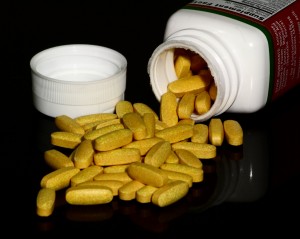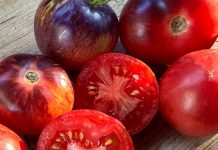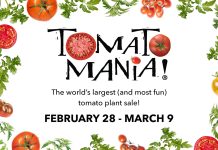 I am not a great cook or a fantastic baker. Measuring this or measuring that usually goes by the wayside when I either mix up the amount in my head, or my conversion from ounces to cups or cups to ounces seems to differ from the standard.
I am not a great cook or a fantastic baker. Measuring this or measuring that usually goes by the wayside when I either mix up the amount in my head, or my conversion from ounces to cups or cups to ounces seems to differ from the standard.
I also tend to forget or lack an ingredient, so improvisation usually takes over. But mostly I end up putting extra amounts of an ingredient I adore believing it would make it taste even better.
Whatever the reason, I can never just stick to the recipe’s measured ingredients. Hence the recipe’s success is usually fair to good. Sometimes it lands in the trash bin. But on those rare occasions when all the planets are aligned just right and I manage to precisely follow the ingredients, the dish is amazing.
The human body works in the same way by grabbing the right ingredients in the right amount from the right foods ingested so everything runs in good health. But because our foods are becoming less nutritious with soil depletion and pesticide use, dietary supplements are becoming more popular.
There is no substitute for eating a nutritious variety of foods to keep healthy but sometimes supplementation does help. The U.S. Department of Health and Human Services’ National Institutes of Health (NIH) states scientific evidence shows some dietary supplements are beneficial for overall health and for managing some health conditions such as calcium and vitamin D for keeping bones strong and reducing bone loss.
But with the increase in popularity of supplementation products that are popping up everywhere, over-supplementation, particularly minerals and fat-soluble vitamins, can build up in the body over time.
With ingredients found in dietary supplements added to a growing number of foods, including breakfast cereals and beverages, adding supplements might be unnecessary. There are red flags to look out for when searching for supplements and one of them concerns proprietary blends. These can be elusive because the exact amount of each ingredient found in the blend is not listed. It’s always best to use a supplement that lists exact amounts of its ingredients.
And consider this, with all the wonders of antioxidants spilling all over the place: even antioxidants have their limitations.
Dr. James Watson, the Nobel Laureate who identified the sequence of DNA, authored an article where he remarked that the public’s confidence in antioxidants is misplaced and that the use of antioxidant might be more of a cause than prevention for cancer.
Evidently humans need some free radicals to kill bacteria and eliminate cancer cells and the overuse of antioxidants might not be beneficial for cancer patients.
Bottom line is getting nutrition from foods is far better than getting them from supplements, where too much or not enough still makes for a body out of balance.
But when supplements are needed, it’s best to be informed and learn all you can about them. One good place to start is NIH’s Dietary Supplement Fact Sheets found at
ods.od.nih.gov/factsheets/list-al/. Or search scholar.google.com to check the human studies substantiating the supplements claimed effects.
Contact Gina at Ima_gina_tion@yahoo.com.




